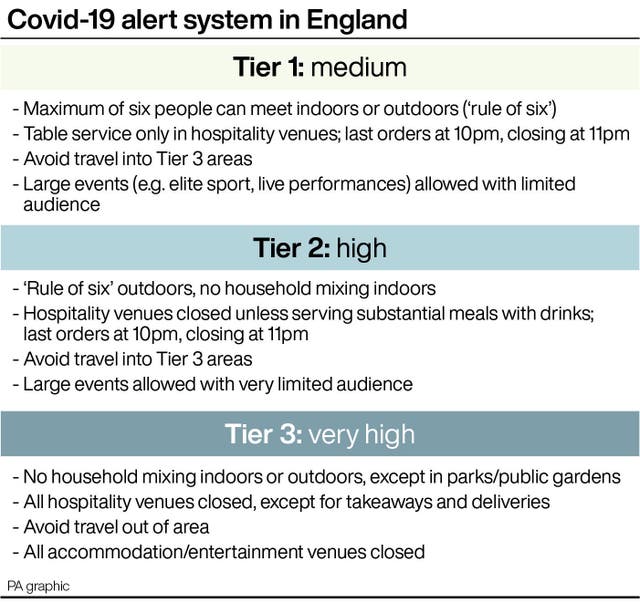We should be getting back to normality by Easter, says Hancock
There will be a shift to an emphasis on ‘personal responsibility’ rather than social distancing after Easter, the Health Secretary said,

Health Secretary Matt Hancock has said he hopes the rollout of a Covid-19 vaccine will signal that life can go back to “normal” by Easter.
His comments came after three teams of scientists published positive interim clinical data on trials for potential Covid-19 vaccines.
Mr Hancock also suggested that some habits encouraged during the pandemic, such as regular hand-washing, would continue.
But he said he did not expect another national lockdown.
There will be a shift to an emphasis on “personal responsibility” rather than social distancing after Easter once the vaccines have reached the most vulnerable people, he added.
He said the Joint Committee on Vaccination and Immunisation (JCVI) had recommended that once all people aged 50 and over had been vaccinated – down to group 10 on the priority list – social distancing restrictions that “damage” society are likely to be lifted.
The Cabinet minister said: “I think that, should we manage to get the number of deaths, the number of hospitalisations, down sharply because of the vaccination programme… then essentially, I think we will get to the point where we are protecting the most vulnerable and there (is) the argument for more personal responsibility in how we respond to this, rather than NPIs (social distancing interventions), particularly the NPIs that damage the economy or society and wellbeing.
“I think that is where we’ll get to, yes.”
Mr Hancock also told a joint session of the Health and Social Care Committee and the Science and Technology Committee: “After Easter, we think we will be getting back to normal.
“There are some things that are ‘no regrets’, right? Washing your hands more and some parts of social distancing are no-regrets things that, I think, will become commonplace.
“But those damaging social distancing interventions that have downsized, whether economic or social downsides in terms of our wellbeing, I should hope that we can lift those after Easter if these two vaccines are approved by the regulator, which of course is an independent decision for the MHRA (Medicines and Healthcare products Regulatory Agency).”
On the chances of another national lockdown, he told MPs: “I very much hope not to by having a tiered system which is calibrated to be able to bring the virus under control, where that’s necessary.”
Mr Hancock said he was “100%” sure that social distancing measures had been beneficial.

Asked whether he had properly considered the benefits of averting deaths against protecting freedoms and liberties when implementing the restrictions, Mr Hancock said: “Yes, I absolutely do, I think you’ve got to consider all these things.
“Of course, the decisions in terms of impinging freedoms weigh heavily on me, and certainly on the Prime Minister.
“The economic impacts are obvious. I came into politics to try to improve economic chances for people, that was my background that led me here, and now I find myself doing this.
“The reason I can say 100% I think the NPIs have been necessary is that we also know that if the cases go up, if R is above 1.0, then ultimately that is exponential and that means they will go up more and more, and more and more sharply.
“The inevitable consequence of that is that we will bring in stronger NPIs to bring it down, and that has a bigger economic consequence.
“I think, therefore, the lesson of hit it hard and hit it early is an important one.”
During the hearing, which focused on measures taken to counter the spread of the pandemic, Mr Hancock was also quizzed on the preparedness operation Project Cygnus.
He told MPs: “The problem with Project Cygnus – the exercise was conducted well, all the lessons from it were noted and acted upon.
“We wouldn’t have had the Coronavirus Act in draft had we not had Project Cygnus.
“The problem was it started from the assumption that we were going to have a pandemic flu that was already rampant and widespread because it was an exercise about what you do at the period at which lots of people are already dying.
“But what it didn’t ask was the prior question of what type of pandemic is most likely? What are the different characteristics of different pandemics like flu or coronavirus?”





